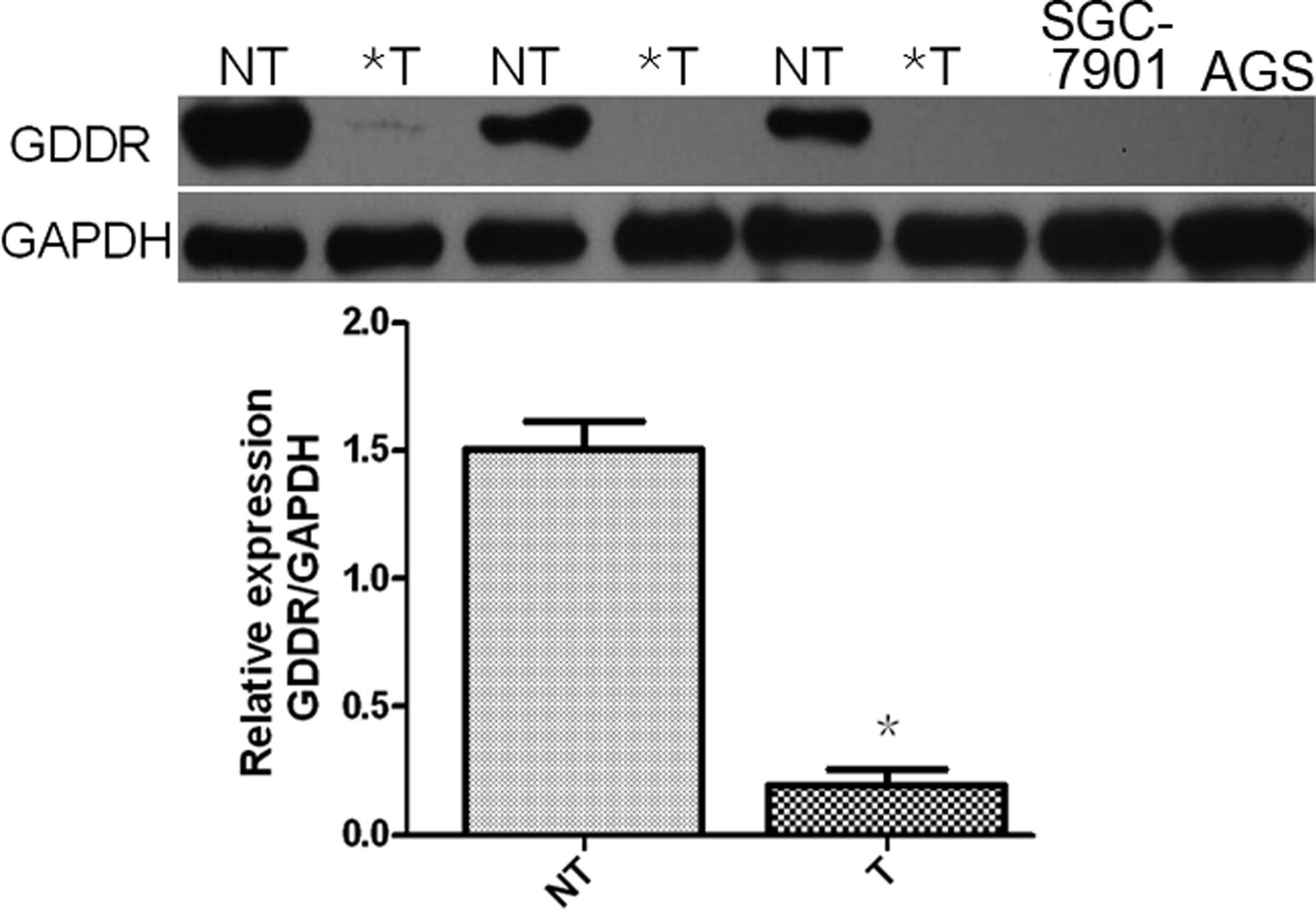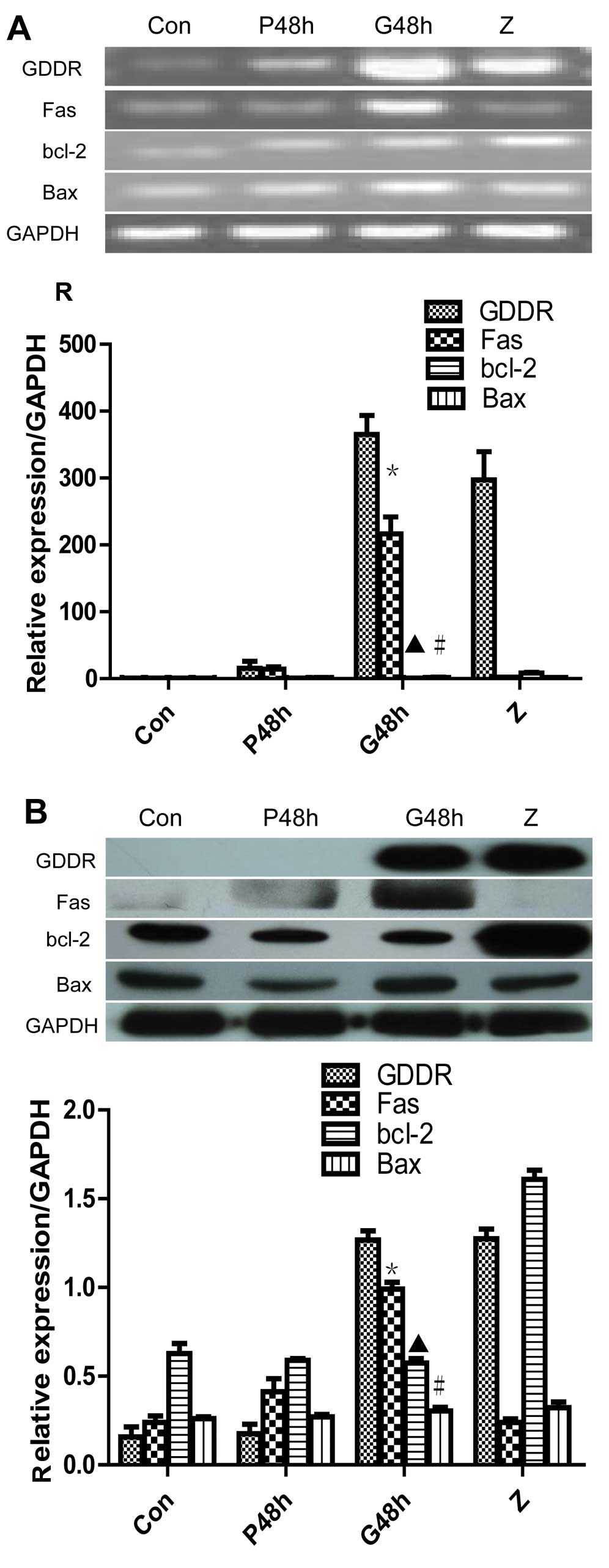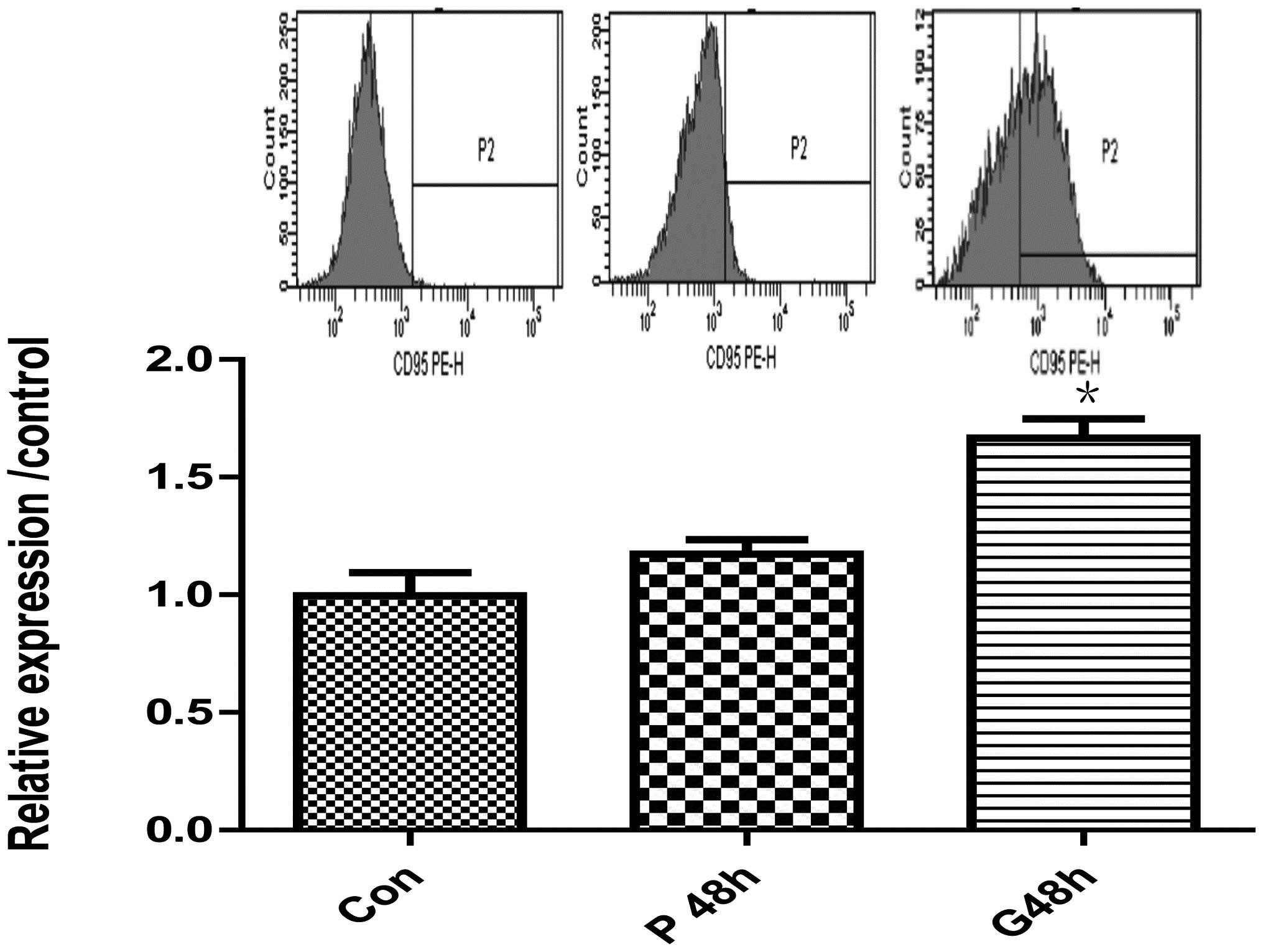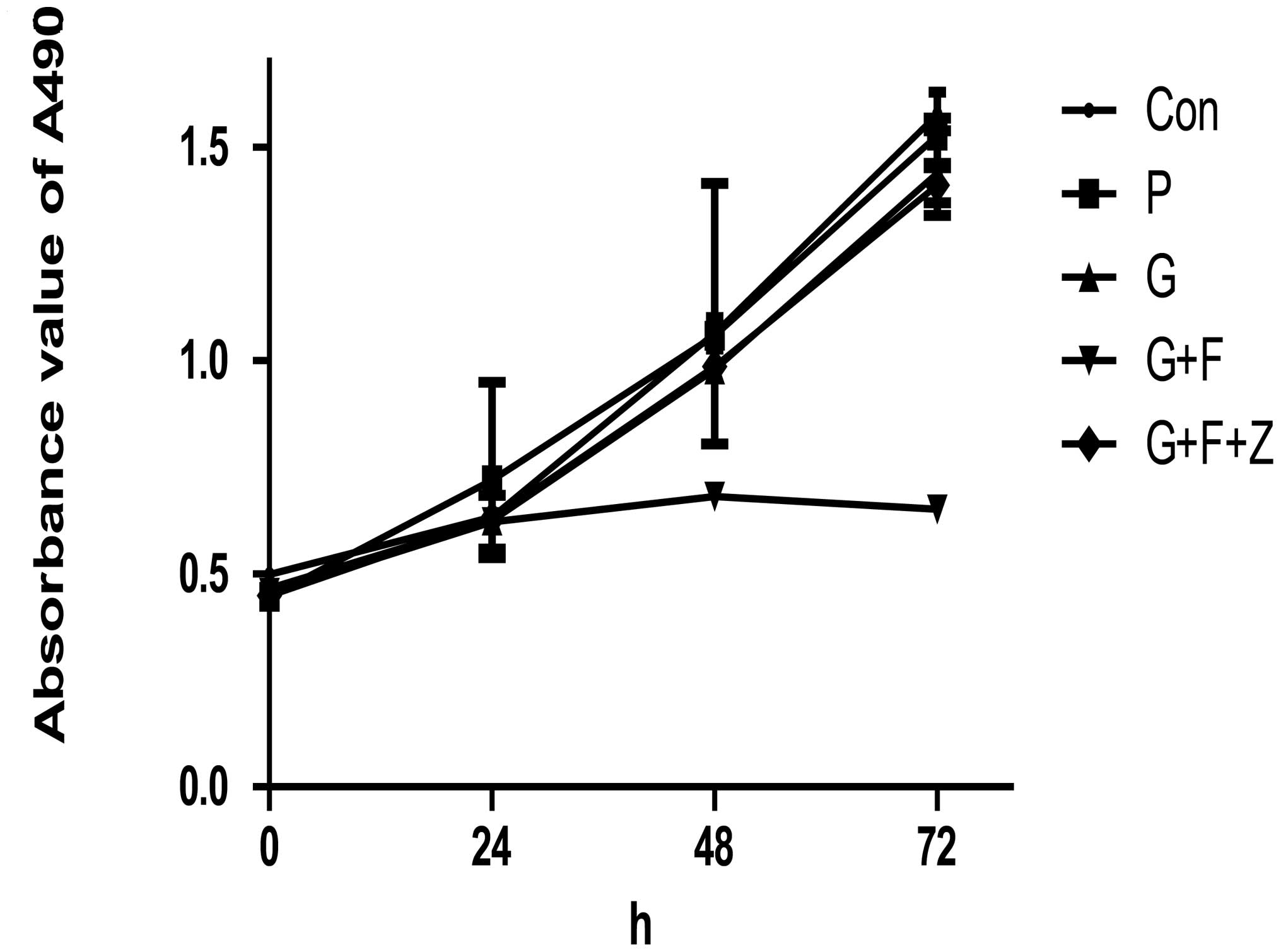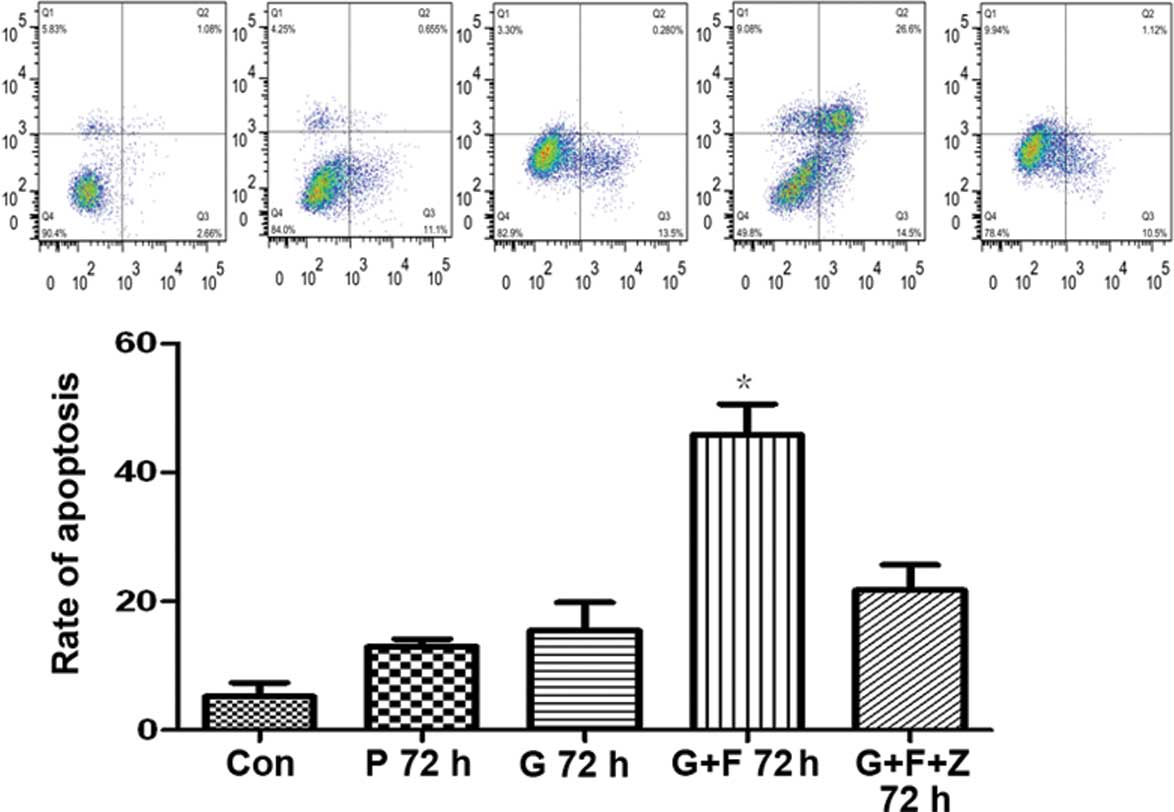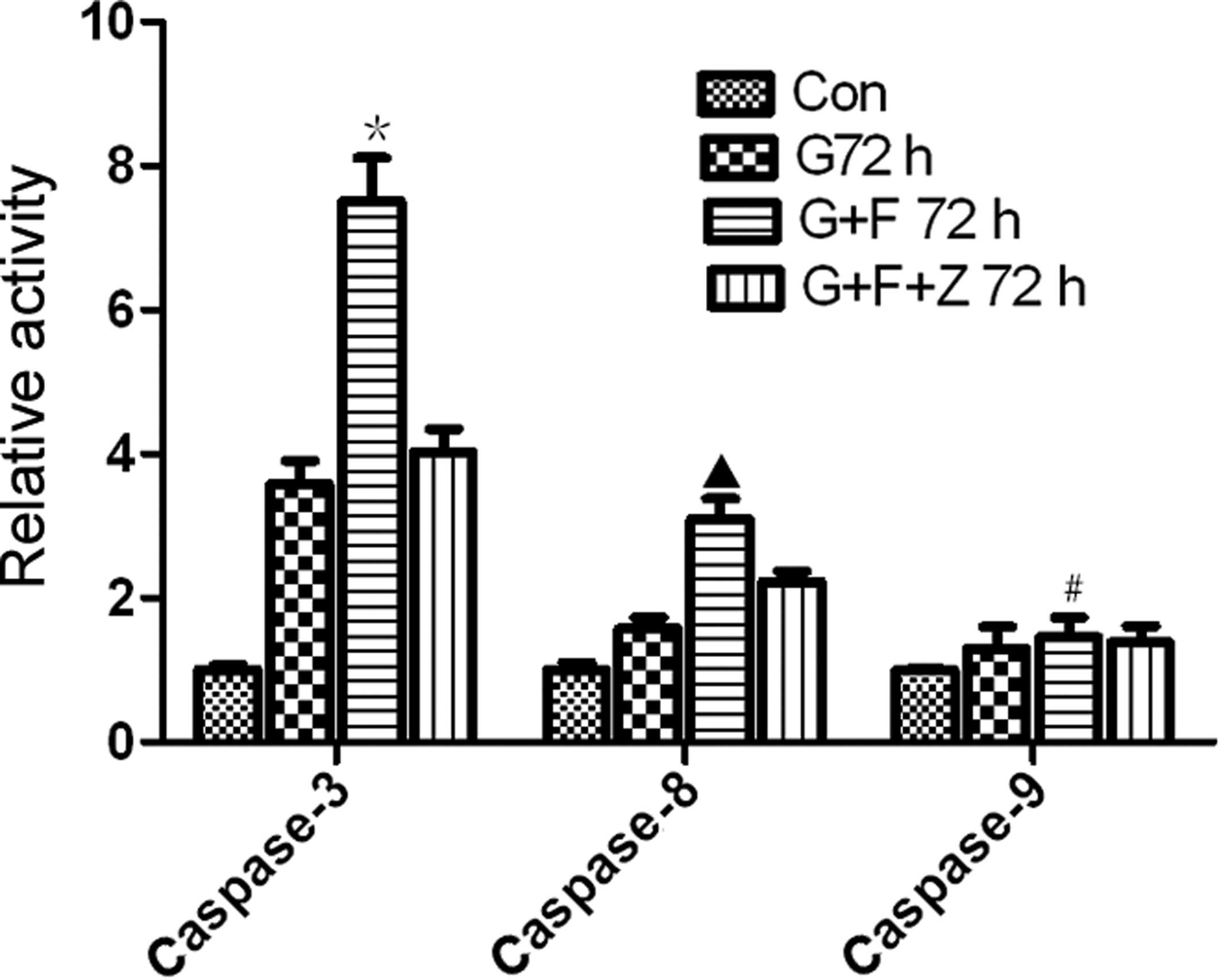|
1
|
Forman D and Burley VJ: Gastric cancer:
global pattern of the disease and an overview of environmental risk
factors. Best Pract Res Clin Gastroenterol. 20:633–649. 2006.
View Article : Google Scholar : PubMed/NCBI
|
|
2
|
Hohenberger P and Gretschel S: Gastric
cancer. Lancet. 362:305–315. 2003. View Article : Google Scholar
|
|
3
|
Leung WK, Wu MS, Kakugawa Y, et al: Asia
Pacific Working Group on Gastric Cancer: Screening for gastric
cancer in Asia: current evidence and practice. Lancet Oncol.
9:279–287. 2008. View Article : Google Scholar : PubMed/NCBI
|
|
4
|
Soerjomataram I, Lortet-Tieulent J, Parkin
DM, et al: Global burden of cancer in 2008: a systematic analysis
of disability-adjusted life-years in 12 world regions. Lancet.
380:1840–1850. 2012.PubMed/NCBI
|
|
5
|
Yoshida T, Ono H, Kuchiba A, et al:
Genome-wide germline analyses on cancer susceptibility and GeMDBJ
database: Gastric cancer as an example. Cancer Sci. 7:1582–1589.
2010. View Article : Google Scholar : PubMed/NCBI
|
|
6
|
Mirvish SS: Gastric cancer and salivary
nitrate and nitrite. Nature. 315:461–462. 1985. View Article : Google Scholar : PubMed/NCBI
|
|
7
|
Parsonnet J, Friedman GD, Vandersteen DP,
et al: Helicobacter pylori infection and the risk of gastric
carcinoma. N Engl J Med. 325:1127–1131. 1991. View Article : Google Scholar
|
|
8
|
Lo SS, Wu CW, Hsieh MC, et al:
Relationship between age and clinical characteristics of patients
with gastric cancer. J Gastroenterol Hepatol. 11:511–514. 1996.
View Article : Google Scholar : PubMed/NCBI
|
|
9
|
Hwang H, Dwyer J and Russell RM: Diet,
Helicobacter pylori infection, food preservation and gastric
cancer risk: are there new roles for preventative factors? Nutr
Rev. 52:75–83. 1994.
|
|
10
|
Roberts-Thomson IC and Butler WJ:
Polymorphism and gastric cancer. J Gastroenterol Hepatol.
20:793–794. 2005. View Article : Google Scholar : PubMed/NCBI
|
|
11
|
Du JJ, Dou KF, Peng SY, et al:
Down-regulated full-length novel gene GDDR and its effect on
gastric cancer. Zhonghua Yi Xue Za Zhi. 83:1166–1168. 2003.(In
Chinese).
|
|
12
|
Sánchez-Pulido L, Devos D and Valencia A:
BRICHOS: a conserved domain in proteins associated with dementia,
respiratory distress and cancer. Trends Biochem Sci. 27:329–332.
2002.PubMed/NCBI
|
|
13
|
Oien KA, McGregor F, Butler S, et al:
Gastrokine 1 is abundantly and specifically expressed in
superficial gastric epithelium, down-regulated in gastric
carcinoma, and shows high evolutionary conservation. J Pathol.
203:789–797. 2004. View Article : Google Scholar
|
|
14
|
Westley BR, Griffin SM and May FE:
Interaction between TFF1, a gastric tumor suppressor trefoil
protein, and TFIZ1, a brichos domain-containing protein with
homology to SP-C. Biochemistry. 44:7967–7975. 2005. View Article : Google Scholar : PubMed/NCBI
|
|
15
|
Du JJ, Dou KF, Peng SY, et al: Study on
novel gene GDDR related to gastric cancer. Zhonghua Wai Ke Za Zhi.
43:10–13. 2005.(In Chinese).
|
|
16
|
Chu G, Qi S, Yang G, et al:
Gastrointestinal tract specific gene GDDR inhibits the progression
of gastric cancer in a TFF1 dependent manner. Mol Cell Biochem.
359:369–374. 2012. View Article : Google Scholar : PubMed/NCBI
|
|
17
|
Baus-Loncar M, Lubka M, Pusch CM, et al:
Cytokine regulation of the trefoil factor family binding protein
GKN2 (GDDR/TFIZ1/blottin) in human gastrointestinal epithelial
cells. Cell Physiol Biochem. 20:193–204. 2007.
|
|
18
|
Reed JC: Mechanisms of apoptosis. Am J
Pathol. 157:1415–1430. 2000. View Article : Google Scholar
|
|
19
|
Jin Z and El-Deiry WS: Overview of cell
death signaling pathways. Cancer Biol Ther. 4:139–163.
2005.PubMed/NCBI
|
|
20
|
Carrington PE, Sandu C, Wei Y, et al: The
structure of FADD and its mode of interaction with procaspase-8.
Mol Cell. 22:599–610. 2006. View Article : Google Scholar
|
|
21
|
Roy MK, Thalang VN, Trakoontivakorn G and
Nakahara K: Mahanine, a carbazole alkaloid from Micromelum
minutum, inhibits cell growth and induces apoptosis in U937
cells through a mitochondrial dependent pathway. Br J Pharmacol.
145:145–155. 2005.
|
|
22
|
Henkler F, Behrle E, Dennehy KM, et al:
The extracellular domains of FasL and Fas are sufficient for the
formation of supramolecular FasL-Fas clusters of high stability. J
Cell Biol. 168:1087–1098. 2005. View Article : Google Scholar : PubMed/NCBI
|
|
23
|
Ashkenazi A and Dixit VM: Death receptors:
signaling and modulation. Science. 281:1305–1308. 1998. View Article : Google Scholar : PubMed/NCBI
|
|
24
|
Thorburn A: Death receptor-induced cell
killing. Cell Signal. 16:139–144. 2004. View Article : Google Scholar
|
|
25
|
Houston A and O’Connell J: The Fas
signalling pathway and its role in the pathogenesis of cancer. Curr
Opin Pharmacol. 4:321–326. 2004. View Article : Google Scholar : PubMed/NCBI
|
|
26
|
Mollinedo F and Gajate C: Fas/CD95 death
receptor and lipid rafts: new targets for apoptosis-directed cancer
therapy. Drug Resist Updat. 9:51–73. 2006. View Article : Google Scholar : PubMed/NCBI
|
|
27
|
Zheng HC, Sun JM, Wei ZL, et al:
Expression of Fas ligand and caspase-3 contributes to formation of
immune escape in gastric cancer. World J Gastroenterol.
9:1415–1420. 2003.PubMed/NCBI
|
|
28
|
Boroumand-Noughabi S, Sima HR,
Ghaffarzadehgan K, et al: Soluble Fas might serve as a diagnostic
tool for gastric adenocarcinoma. BMC Cancer. 10:2752010. View Article : Google Scholar : PubMed/NCBI
|
|
29
|
Li Z, Wang Z, Zhao Z, et al: Expression of
Fas, FasL and IFN-gamma in gastric cancer. Beijing Da Xue Xue Bao.
35:386–389. 2003.PubMed/NCBI
|
|
30
|
Gryko M, Guzińska-Ustymowicz K, Pryczynicz
A, et al: Correlation between Fas and FasL proteins expression in
normal gastric mucosa and gastric cancer. Folia Histochem Cytobiol.
49:142–147. 2011. View Article : Google Scholar : PubMed/NCBI
|
|
31
|
Kouznetsova I, Laubinger W, Kalbacher H,
et al: Biosynthesis of gastrokine-2 in the human gastric mucosa:
restricted spatial expression along the antral gland axis and
differential interaction with TFF1, TFF2 and mucins. Cell Physiol
Biochem. 20:899–908. 2007. View Article : Google Scholar
|
|
32
|
Otto WR, Patel K, McKinnell I, et al:
Identification of blottin: a novel gastric trefoil factor family-2
binding protein. Proteomics. 6:4235–4245. 2006. View Article : Google Scholar : PubMed/NCBI
|
|
33
|
Moss SF, Lee JW, Sabo E, et al: Decreased
expression of gastrokine 1 and the trefoil factor interacting
protein TFIZ1/GKN2 in gastric cancer: influence of tumor histology
and relationship to prognosis. Clin Cancer Res. 14:4161–4167. 2008.
View Article : Google Scholar : PubMed/NCBI
|
|
34
|
Resnick MB, Sabo E, Meitner PA, et al:
Global analysis of the human gastric epithelial transcriptome
altered by Helicobacter pylori eradication in vivo. Gut.
55:1717–1724. 2006. View Article : Google Scholar : PubMed/NCBI
|
|
35
|
Rippa E, La Monica G, Allocca R, et al:
Overexpression of gastrokine-1 in gastric cancer cells induces
Fas-mediated apoptosis. J Cell Physiol. 226:2571–2578. 2011.
View Article : Google Scholar : PubMed/NCBI
|















